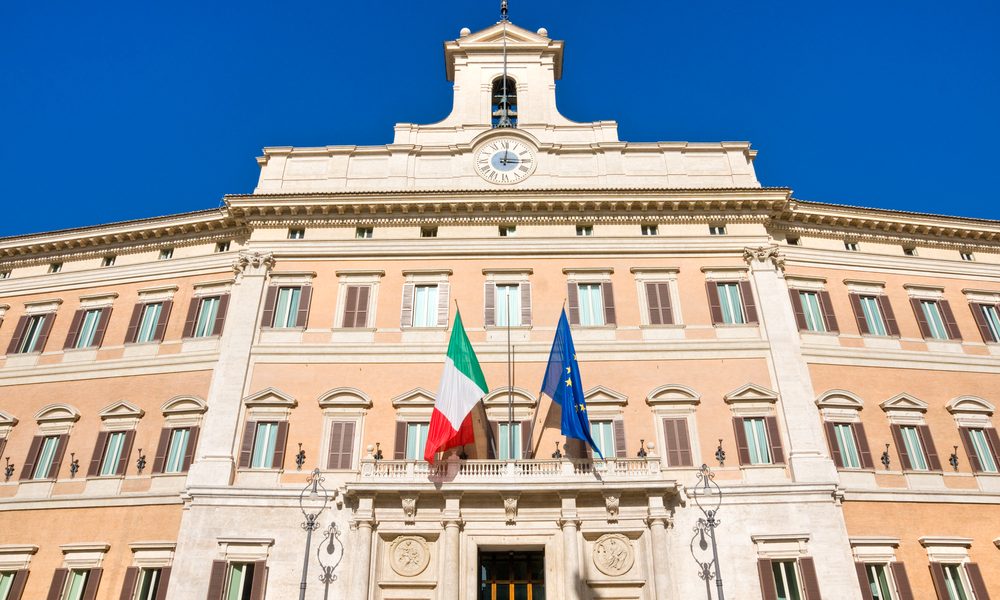The Italian Parliament has finally started the voting process on a bill defining the key pillars for the reorganization of the gambling sector, which will be implemented by the government via subsequent decrees.
Since gambling is a state-reserved activity, one of these key pillars is the concession model for the gambling offer, together with the enhancement of consumer protection, public order, and security.
This awaited reform has been long demanded, mostly by the land-based gambling sector, in relation to the need to harmonize the distribution and opening-times’ rules for slot arcades and betting shops all over the nation, but this reorganisation bill should also include some reforms of online-gambling laws.
Indeed, the current Italian remote-gambling legal framework, once revered as best practice, offers today a complex scenario with some uncertainty and lack of coherence.
This uncertainty is particularly true when it comes to the next remote-gambling-concessions’ assignment rules.
The last tender, launched by the Italian regulator ADM in January 2018, was for a total number of new remote-gambling concessions of up to 120 and a one-off fee of €200,000 to be valid until 31 December 2022. As of now, all 90 current remote-gambling concessions will expire on 31 December 2024, after having benefited from a two-year extension of the Budget Law for 2023.
However, the new remote-gambling tender rules set forth with the Budget Law for 2020 under Prime Minister Conte Government, under discussion since their introduction, aim to significantly reduce the remote gambling concessions to a maximum of 40, with a minimum bidding price at €2,500,000 each for a nine-year period of validity, not renewable. This tender procedure, expected in 2020, was subsequently postponed, also following complaints from the national and European remote-gambling associations, LOGiCO and EGBA.
Now, the government will have to reshape the next tender’s assignment conditions in order to avoid any unjustified restrictions on access to the Italian online-gambling market.
In the meantime, we can already assist with a “self-regulation” of the market, in two ways: 1) through the exit by operators with minor and unprofitable shares and 2) via merger-and-acquisition agreements that consolidate some big players’ positioning. In 2022, remote-gambling gross gaming revenue (GGR) reached €3.9 billion, an increase of 4.6% compared to 2021 (18.5% increase year over year in the second quarter). But according to EGLA analysis, both the (remote) betting and the (remote) casino-gaming markets are concentrated in a range of 10-15 operators out of 90, thus showing an extremely competitive market.
Another strong element of uncertainty and lack of coherence for the remote-gambling concessionaires was brought by the introduction, in 2018, of the advertising and sponsorship ban for gambling. The ban entered into force after a Prime Minister Conte Government decision, without any risk assessment of the impact on players of gambling advertising. Neither was such risk assessment made a posteriori, to measure the effectiveness of the ban. While the advertising and sponsorship ban refers to all gambling activities, it clearly penalizes the remote-gambling concessionaires, especially those that entered the market with the last 2018 tender. Above all, the consequences of the ban are extremely relevant, as the ban negates the role of legal gambling advertising in channelling consumers to a controlled offer and is ineffective in terms of illegal gambling advertising, which has even gained visibility.
This reorganization bill should therefore take into account past experience and, possibly, supersede the ban with the right legislative and regulatory paths to be necessarily taken in light of consumer-protection enhancement.
Also, the recurrent risk of tax increase on gambling revenues, as well as the continuous request of additional tax contributions, first to sustain sports during the pandemic period, then to sustain sports through a sort of “betting right” according to the French system, do not respond to the need of legal certainty within the sector.
Ultimately, the awaited reform should also fill in the gap in the lack of regulation for the many B2B providers, in consideration of their relevant roles and responsibilities in the operation of remote gambling in Italy, such as the hosting providers that manage concessionaires’ platforms and software providers. Introducing a regulation model for the remote-gambling B2B operators would benefit both the providers and the concessionaires, as well as clarify the remote-gambling supply chain.
Without a doubt, the above complex scenario is a result of the previous governments having stopped the dialogue with its concessionaires, as it had in the past.
As of now, the Italian Parliament has already started consultations on this reform bill, recognizing their importance. Proactively, remote-gambling concessionaires should take these opportunities to deepen the mentioned relevant issues, but also to show the industry’s efforts in covering emerging new topics (such as the use of AI in gambling, the use of crypto, etc.) where the relevant regulations are still to be shaped.




